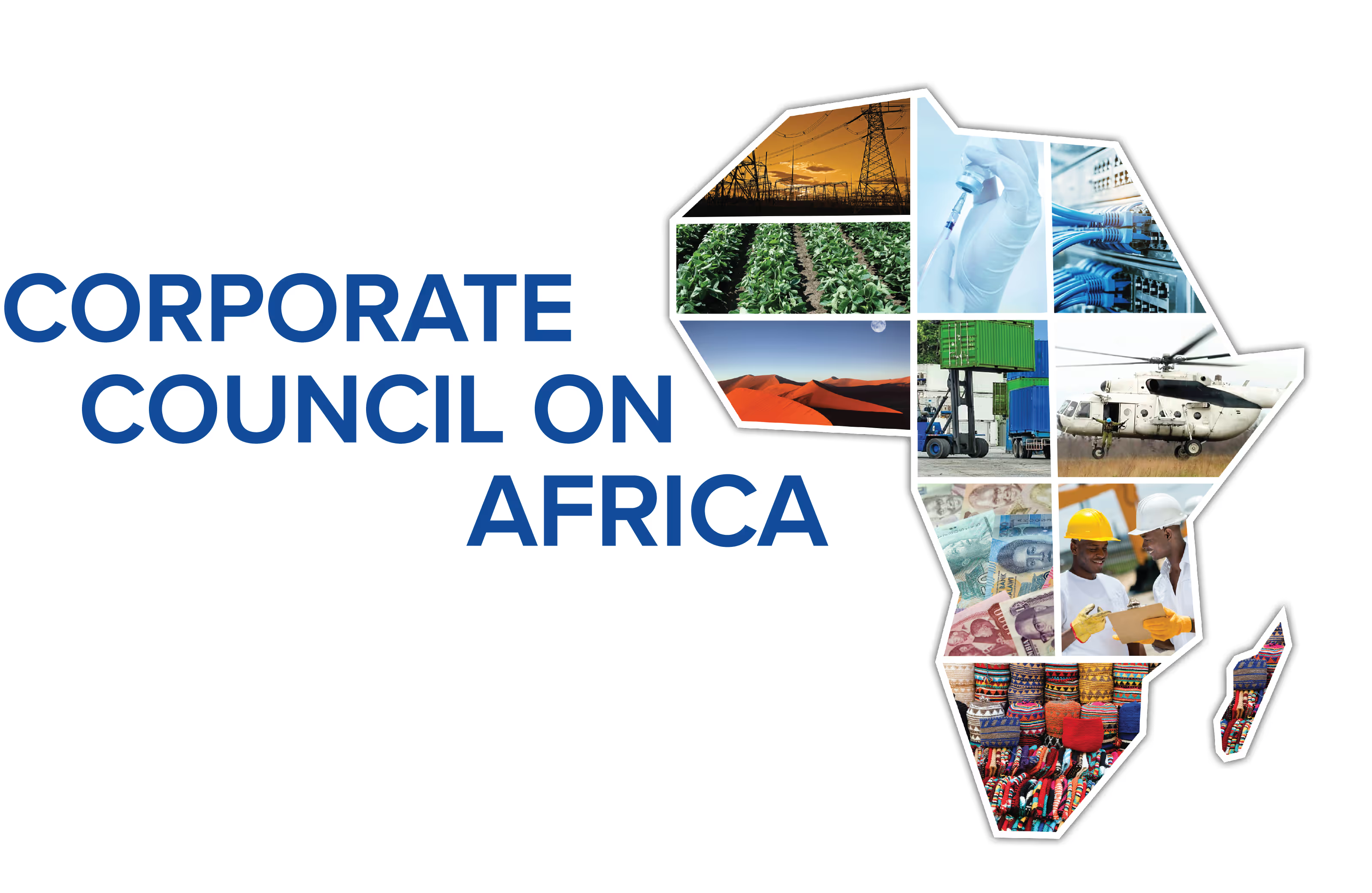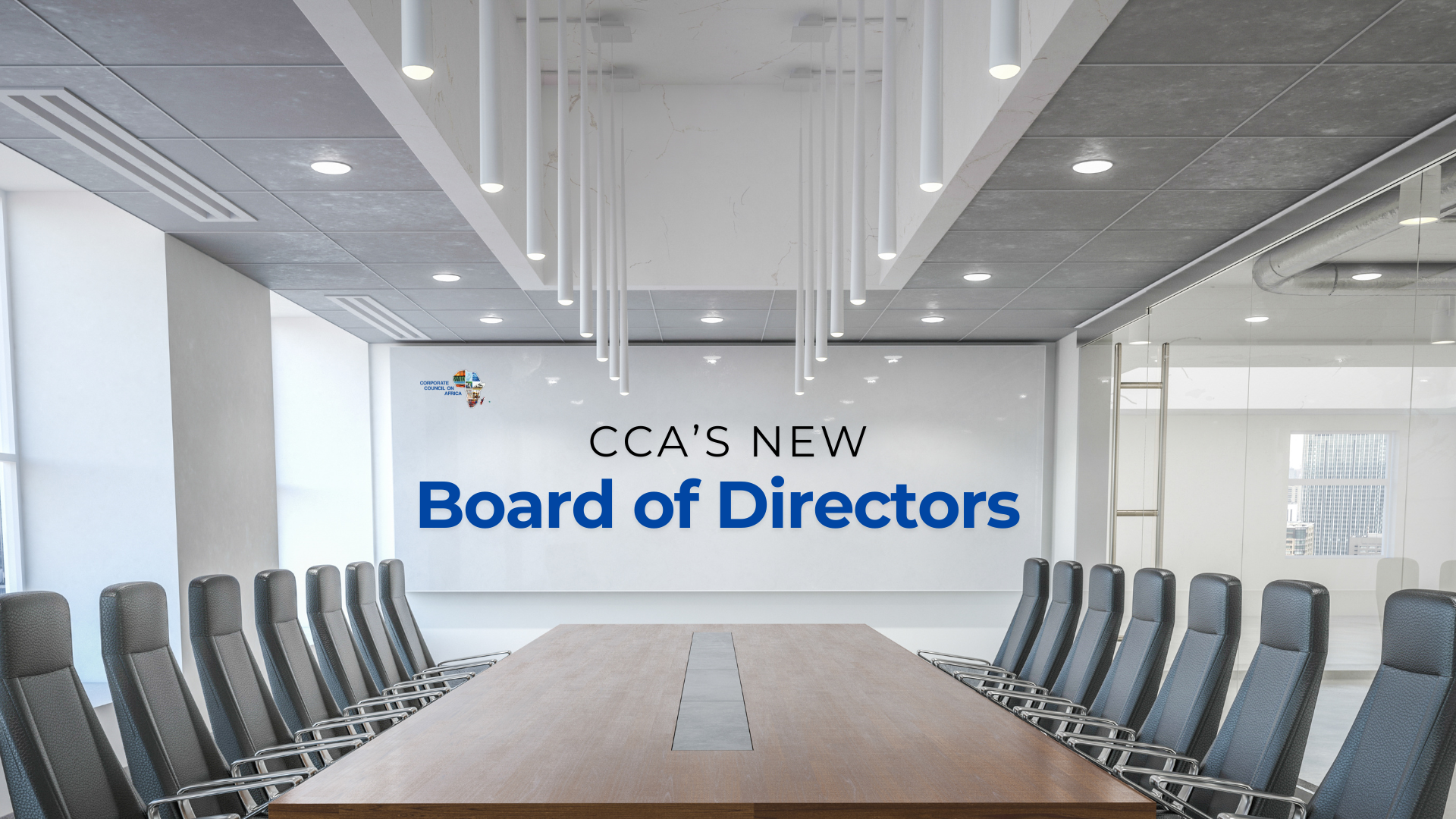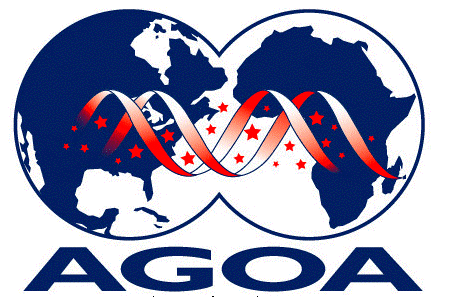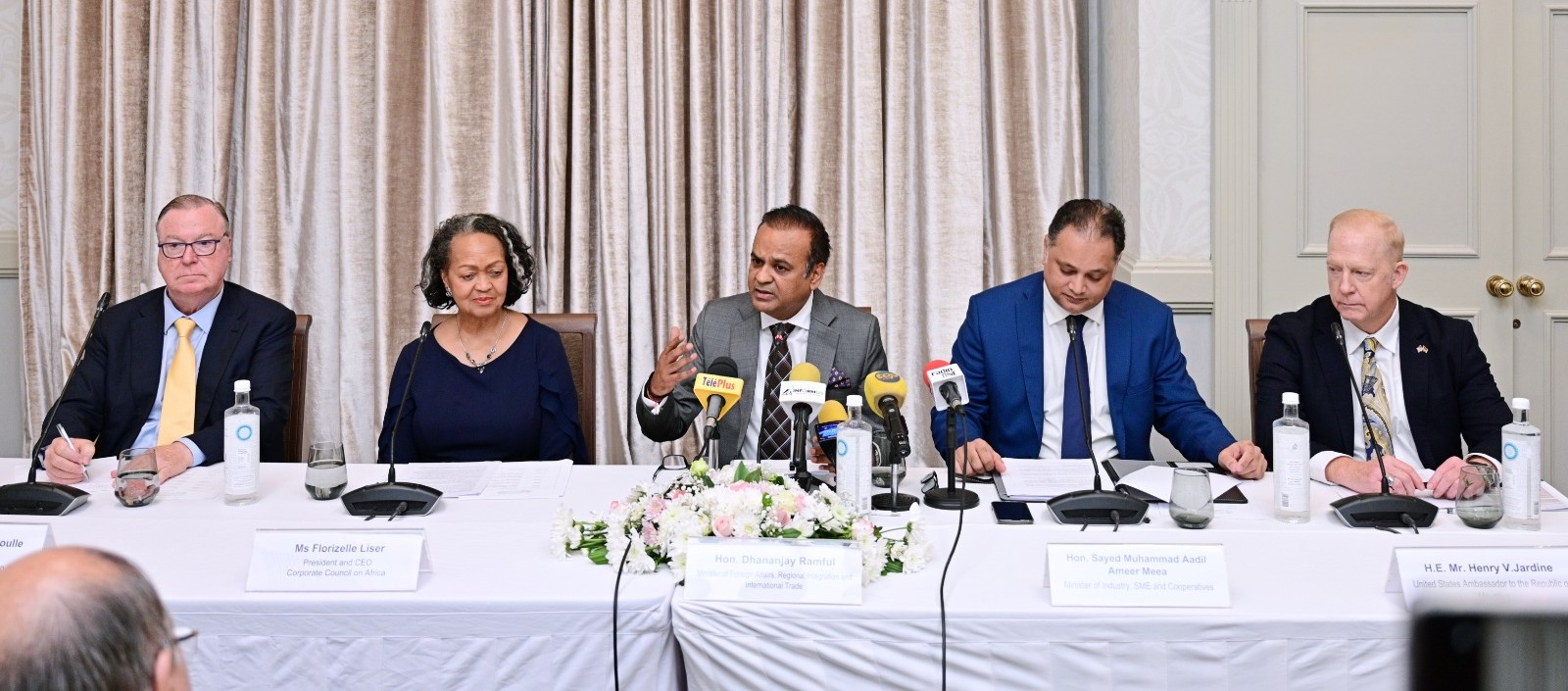Bold U.S. Action Needed on AGOA, DFC, and Health Partnerships

Corporate Council on Africa Statement
Washington, DC
July 2025
Critical Moment in U.S.-Africa Partnership Requires Bold Action on Three Key Initiatives to Advance America First Agenda
The Corporate Council on Africa (CCA) was pleased to host the 17th Annual U.S.-Africa Business Summit in Luanda, Angola from June 22-25. Over four transformative days, the Summit brought together 12 African Heads of State and Government Leaders, a distinguished U.S. delegation, 31 official African delegations, heads of key African institutions, and over 2,700 U.S. and African senior leaders and corporate decision-makers. This year's Summit achieved remarkable outcomes, with more than $2.5 billion in trade and investment deals and commitments announced between U.S. and African partners.
The concrete results are a welcome reaffirmation of the potential for U.S. and African trade and investment relations to grow significantly and create American jobs while strengthening U.S. competitiveness. African leaders reaffirmed their strong interest in fostering partnerships between U.S. and African companies.
Throughout the Summit, there was a clear sense that this is the time for U.S. and African partners to step up to realize new potential for regional and continental value chains and the development of key sectors like energy, ICT, critical minerals, manufacturing and healthcare. That sentiment closely corresponds to Secretary Marco Rubio's statement of July 1, in which he declared that the United States "will favor those nations that have demonstrated both the ability and willingness to help themselves and will target our resources to areas where they can have a multiplier effect and catalyze durable private sector, including American companies, and global investment." He promised America would prioritize "trade over aid, opportunity over dependency, and investment over assistance."
The three initiatives outlined below directly advance this vision while strengthening America's competitive position in Africa:
1. Renew the African Growth and Opportunity Act (AGOA): Securing American Supply Chains and Markets
The African governments at the CCA Summit demonstrated they are implementing reforms to attract investment and seeking American partners to support initiatives that are mutually beneficial. This offers America a golden opportunity to significantly expand business for American firms and workers.
Renewing the African Growth and Opportunity Act (AGOA) for a commercially sustainable period (preferably ten years) delivers critical America First benefits by providing U.S. companies with diversified, reliable sourcing alternatives to China-dominated supply chains. AGOA has never been more relevant as African countries are creating the regional and continental value chains that can benefit from access to the U.S. market in ways that simply were not available previously.
AGOA's two-way benefits extend far beyond duty-free access for African exports – the program enables U.S. companies to diversify their sourcing across critical sectors including textiles/apparel, light manufacturing, agriculture, and emerging technologies. This diversification strengthens supply chain resilience, supports competitive pricing for American businesses, and creates high-paying jobs in U.S. ports, logistics, manufacturing, and service sectors that support African trade partnerships.
Without swift AGOA renewal, American companies risk losing market share to European and Asian competitors. Providing access to the U.S. market often leads to U.S. exports to African manufacturers and builds stronger trade and investment ties. China has just eliminated duty for African exports, following Europe's approach through economic partnership agreements. Renewing AGOA before its September expiry is an expeditious and effective way to demonstrate America's commitment to implement Secretary Rubio's vision of emphasizing trade and global investment while allowing America to compete.
2. Reauthorize the Development Finance Corporation: America's Competitive Edge in Africa
CCA was delighted to see such a strong U.S. Government delegation at the Luanda Summit, including senior leadership from the Development Finance Corporation (DFC). In just five short years since its creation during the First Trump Administration, DFC has made enormous strides in developing new and more effective tools to support U.S. companies looking for new market opportunities overseas. It is clear from the CCA Summit in Luanda that DFC has become an important part of the solution set for discussions on developing critical minerals, energy, 21st century infrastructure and healthcare investments.
Reauthorizing DFC before its mandate expires on October 5 is essential for maintaining America's competitive edge against China and other competitors in Africa. While China (and other competitors) leverage state support to deploy billions in financing across Africa, American companies need DFC's unique tools to compete effectively and win major infrastructure and energy projects that create jobs not just in Africa but also in the U.S. companies that supply these projects.
DFC's strategic investments directly support American exporters, contractors, and technology companies. Every major project DFC finances in Africa typically generates significant procurement opportunities for U.S. suppliers, from engineering services to advanced manufacturing equipment, creating a multiplier effect for American employment.
CCA looks forward to working with Congress and the Administration on a reauthorization that builds on these successes to make the DFC even more strategic, effective and efficient.
3. Continue Robust U.S. Support for Health Programs to Enhance American Capture of the Fast-Growing African Health Market
The United States has invested essential resources and expertise to advance critical public health priorities in Africa, including through bilateral programs like PEPFAR, the President's Malaria Initiative (PMI), and support for the Vaccine Alliance GAVI and the Global Fund to Fight AIDS, TB, and Malaria. These programs have not only helped save millions of lives but have also helped Africa become the world's second largest and fastest-growing health market, with healthcare spending projected to reach $259 billion by 2030. Continued U.S. support for these programs will ensure American innovation is at the forefront of ending these infectious and preventable diseases, expanding opportunities for American pharmaceutical companies, medical device and diagnostics manufacturers, and health technology firms.
CCA is encouraged by recent Congressional action on funding proposals that signal the continuation of the long-standing bipartisan Congressional support for programs like PEPFAR, PMI, GAVI and the Global Fund. Continuing support for these programs at this critical time in public health will support U.S. companies and U.S. jobs and will help continue a strategic transition in these programs that will reduce U.S. assistance over time, helping partner countries to invest increasingly more in their own health systems, and creating efficiencies in procurement and supply chains. This will also strengthen American national security by building disease detection networks abroad and promoting American goodwill and influence in strategically important regions like Sub-Saharan Africa.
U.S. support for health programs in Africa will facilitate the transition toward more sustainable, trade-oriented partnerships that will unlock opportunities for American pharmaceutical, diagnostics and medical device companies to compete in the African health market, creating high-skilled jobs in the United States and directly supporting Secretary Rubio's "trade over aid" vision which has been echoed and embraced by key African leaders.
Conclusion: Seizing America's Strategic Moment
These three initiatives represent a coordinated America First strategy that advances U.S. economic interests while strengthening our competitive position against China and other nations competing for influence in Africa's growing economy. By renewing AGOA, reauthorizing DFC, and strategically supporting health sector partnerships such as PEPFAR, the Global Fund, and GAVI the United States can transform its relationship with Africa from traditional assistance to mutually beneficial trade and investment partnerships that create American jobs, strengthen supply chains, and secure long-term strategic advantages in one of the world's most dynamic economic regions.



